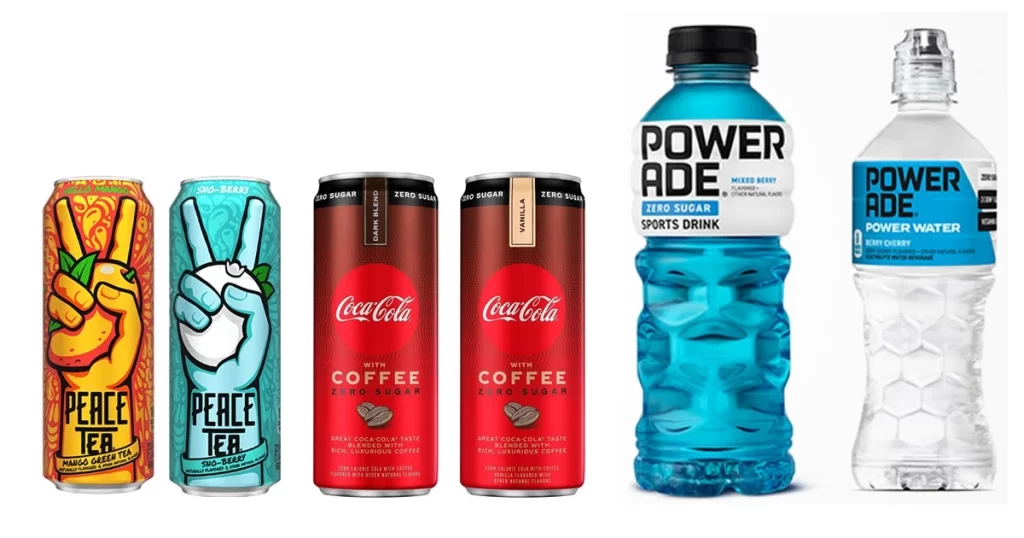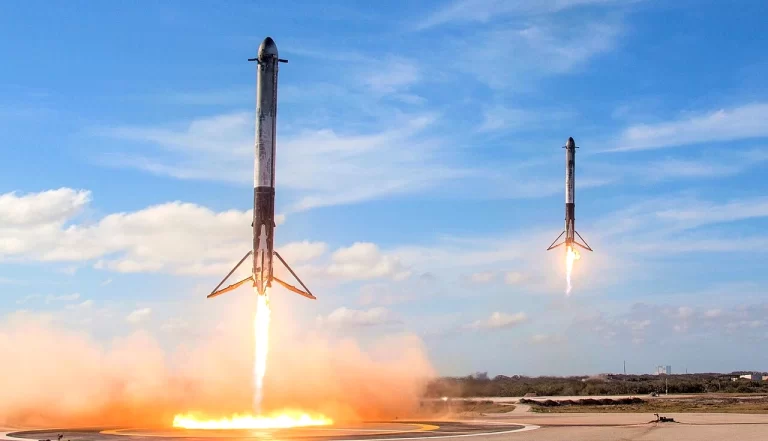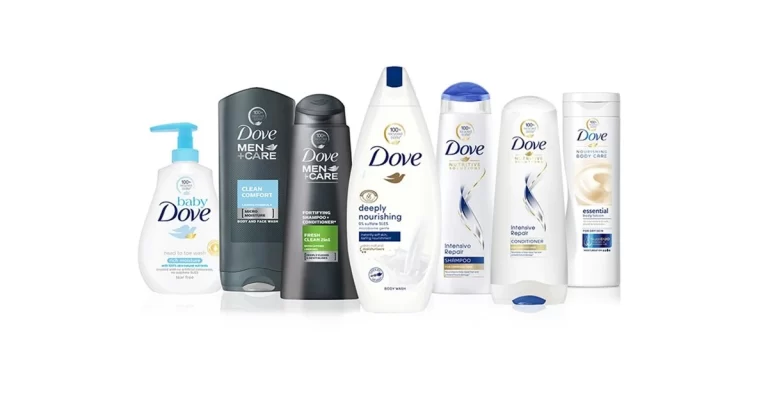Introduction
Coca-Cola, one of the most recognizable names in the beverage industry, has taken bold steps to expand beyond its traditional carbonated drinks. With changing consumer preferences and increasing health awareness, the company has strategically ventured into non-soda categories such as tea, water, and coffee. This case study explores Coca-Cola’s initiatives, the challenges it faces, and the key takeaways for businesses looking to drive sustainable growth in a competitive market.
Company Overview: Coca-Cola’s Legacy
Since its founding in 1886, Coca-Cola has grown into a global powerhouse, best known for its iconic soda products. With operations in over 200 countries, the company has built a legacy centered around its signature carbonated beverages. However, to stay ahead in an evolving market, Coca-Cola has consistently expanded its portfolio, particularly in non-soda categories like tea, bottled water, and coffee. This strategic move ensures the brand remains relevant while catering to modern consumer preferences.
Industry Trends Driving Coca-Cola’s Expansion
The Rising Demand for Healthier Beverages
More consumers today are prioritizing health and wellness, leading to a decline in sugary drink consumption. This shift is driven by growing health awareness, as people become more conscious of the risks associated with excessive sugar intake. Additionally, many governments have introduced sugar taxes and stricter advertising regulations to discourage the consumption of high-sugar beverages.
Another key factor is the increasing preference for natural ingredients. Consumers are gravitating toward beverages with functional benefits and natural components, seeking healthier alternatives that align with their wellness goals.
Growth in the Tea, Water, and Coffee Markets
- Ready-to-Drink Tea – Increasingly popular due to its perceived health benefits and convenience.
- Bottled Water Boom – Sales have surpassed soda, fueled by innovation in flavored, alkaline, and functional water.
- Coffee Market Expansion – The growing demand for premium and ready-to-drink coffee presents lucrative opportunities for beverage companies.
Coca-Cola’s Key Initiatives in Non-Soda Categories
To align with these market trends, Coca-Cola has implemented several initiatives across tea, water, and coffee segments, demonstrating its commitment to innovation and consumer-centric growth.
Expanding in the Tea Market
Coca-Cola’s move into the tea segment highlights its focus on health-conscious consumers. Recognizing the growing demand for organic and sustainable beverages, the company made strategic moves to strengthen its presence in this segment.
The acquisition of Honest Tea helped Coca-Cola establish a presence in the sustainable and eco-friendly beverage space. Additionally, Coca-Cola launched Fuze Tea, a fusion of tea and natural fruit flavors that appeals to younger, urban consumers looking for a refreshing, low-calorie alternative.
With these initiatives, Coca-Cola has carved out a significant share in the competitive ready-to-drink tea segment.
Innovation in Bottled Water
The bottled water market has been a major growth area for Coca-Cola, with its brands Dasani and Smartwater leading the charge. As consumers increasingly seek hydration options beyond soda, Coca-Cola has positioned itself strategically within this expanding category.
Dasani is positioned as an everyday hydration option, appealing to a broad consumer base. Meanwhile, Smartwater is marketed as a premium offering, featuring vapor-distilled water and electrolyte-enhanced variations.
Coca-Cola has further strengthened its presence by introducing flavored and functional water options that cater to wellness-focused consumers.
Investing in Coffee
Coffee has become a cornerstone of Coca-Cola’s non-soda strategy, offering high growth potential and strong profit margins. The company has made strategic moves to expand its presence in the coffee market.
The Costa Coffee acquisition in 2019 was a $4.9 billion deal that gave Coca-Cola access to Costa’s retail stores, vending machines, and packaged coffee products, positioning it as a competitor to Starbucks and Nestlé. Coca-Cola also launched Coca-Cola with Coffee, a unique fusion of Coke and coffee targeting consumers looking for an energy boost.
Additionally, the global expansion of Costa Coffee has introduced packaged coffee products worldwide, strengthening Coca-Cola’s presence in the premium coffee segment.
Strategies Behind Coca-Cola’s Non-Soda Success
Coca-Cola’s ability to thrive in these new categories is driven by well-thought-out strategies.
Optimizing the Brand Portfolio
Instead of spreading resources thin, Coca-Cola focuses on high-performing brands:
- Investing in Market Leaders – Honest Tea, Smartwater, and Costa Coffee align with consumer demand for premium and health-conscious products.
- Phasing Out Underperformers – Coca-Cola eliminates low-performing brands to maintain a strong and relevant portfolio.
Innovation and Regional Adaptability
Coca-Cola understands that consumer preferences vary by region, so it tailors its offerings accordingly:
- Localized Flavors – In Asia, Coca-Cola offers tea beverages with traditional flavors, while in Europe, it emphasizes sparkling and flavored waters.
- Culturally Relevant Marketing – Ads and branding are customized to resonate with local audiences.
This regional flexibility helps Coca-Cola maintain its global appeal while catering to local tastes.
Digital Integration and Consumer Engagement
Coca-Cola has embraced digital tools to strengthen its market presence:
- Social Media Campaigns – Platforms like Instagram and TikTok help the brand connect with younger consumers.
- E-Commerce Expansion – Partnering with online retailers and launching direct-to-consumer platforms.
- Data-Driven Insights – Using consumer analytics to refine product offerings and marketing strategies.
Sustainability Initiatives
Sustainability is a key focus for Coca-Cola, influencing both branding and operational decisions:
- Eco-Friendly Packaging – Introduction of recyclable and plant-based bottles.
- Sustainable Coffee Sourcing – Ethical bean sourcing under Costa Coffee’s sustainability commitments.
- Water Conservation Efforts – Investment in water replenishment projects to promote sustainable usage.
Focus on Functional and Premium Beverages
With growing demand for high-quality and wellness-oriented drinks, Coca-Cola has positioned itself in these segments:
- Functional Beverages – Products like electrolyte-enhanced Smartwater cater to health-conscious consumers.
- Premium Offerings – Costa Coffee helps Coca-Cola compete with Starbucks and other high-end brands.
Results and Benefits
Coca-Cola’s strategic efforts in non-soda categories have delivered impressive results:
| Metric | 2018 | 2023 | Growth |
|---|---|---|---|
| Revenue from Non-Soda Beverages | $10 billion | $16 billion | 60% increase |
| Contribution to Total Sales | 18% | 25% | +7% |
| Market Share in Bottled Water | 15% | 22% | +7% |
These results highlight the company’s ability to capture new growth opportunities while reinforcing its global market leadership.
Coca-Cola Revenue Distribution by Operating Segment
In the third quarter of 2024, Coca-Cola’s revenue was spread across multiple regions, reflecting its strong global presence. North America led the way, generating $18.01 billion, which made up 37.8% of the company’s total revenue. The Europe, Middle East, and Africa (EMEA) segment followed, contributing $8.02 billion (16.8%), while Latin America added $6.31 billion (13.2%). In the Asia Pacific region, revenue reached $5.45 billion (11.4%).
Beyond these key markets, Bottling Investments and Global Ventures collectively brought in $6.69 billion (14.0%) and $3.09 billion (6.5%), respectively. Meanwhile, the Corporate segment accounted for $0.106 billion.
Source – Stock Analysis
Competitive Landscape
The non-soda beverage market is highly competitive, with Coca-Cola going up against both well-established brands and emerging niche players across various segments. To stay ahead, the company must continuously adapt and refine its strategy, particularly in the growing tea and water categories. Understanding these competitive dynamics is essential to assessing Coca-Cola’s market position and long-term approach.
Major Competitors and Segments
| Segment | Key Competitors | Strengths |
|---|---|---|
| Ready-to-Drink Tea | Lipton (Unilever), Arizona Tea, Pure Leaf (PepsiCo) | Strong brand recognition, extensive product variety, competitive pricing |
| Bottled Water | Nestlé (Perrier, Pure Life), Danone (Evian, Volvic), PepsiCo (Aquafina) | Established global presence, premium offerings, sustainable packaging practices |
| Functional Beverages | PepsiCo (Gatorade, Propel), Vita Coco | Innovations in hydration and functional ingredients, targeting health-conscious consumers |
| Emerging Niche Brands | Brew Dr. Kombucha, Liquid Death Water, LaCroix Sparkling Water | Focus on unique offerings like kombucha, sustainability-driven branding, and sparkling options |
Strategic Insights
Coca-Cola’s success in this challenging landscape comes down to a powerful combination of innovation, sustainability, and scale. By leveraging these strengths, the company not only maintains its edge but also creates opportunities for growth in the non-soda sector. Despite the presence of strong competitors, Coca-Cola’s strategic approach positions it well for continued expansion and success in these evolving beverage markets.
Challenges in Diversification
Coca-Cola’s journey into non-soda categories hasn’t been without its hurdles. As the company expands beyond its traditional soda offerings, it faces several key challenges:
- Intense Competition – The tea and water markets are packed with strong, well-established brands. To stand out, Coca-Cola must continuously innovate and differentiate its products.
- Consumer Perception – Many still see Coca-Cola primarily as a soda company. Shifting this perception and positioning itself as a leader in diverse beverage segments remains an ongoing challenge.
- Sustainability Demands – Consumers and regulators are placing increasing pressure on brands to adopt environmentally friendly practices. Meeting these expectations requires substantial investment in sustainable packaging, sourcing, and operations.
Navigating these challenges is crucial for Coca-Cola to solidify its place in the expanding non-soda market while staying true to its brand identity and long-term growth strategy.
Conclusion and Business Lessons
Coca-Cola’s expansion beyond soda—into tea, water, and coffee—highlights the power of adaptability in an evolving market. By spotting emerging trends, leveraging its global reach, and committing to sustainability, the company has successfully positioned itself as a modern beverage leader.
Key Business Lessons
- Diversify with Purpose – Expanding into new categories should align with consumer preferences and market demand.
- Invest in Branding and Sustainability – Building trust through eco-friendly initiatives strengthens brand reputation and customer loyalty.
- Embrace Competition – Staying ahead requires continuous innovation and the ability to differentiate in crowded markets.
Coca-Cola’s journey into non-soda beverages serves as a blueprint for businesses looking to adapt, innovate, and grow sustainably in response to shifting consumer expectations.




